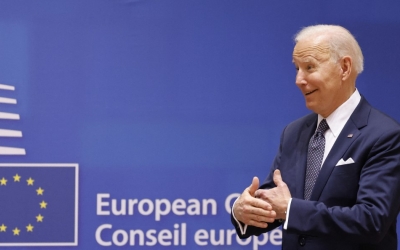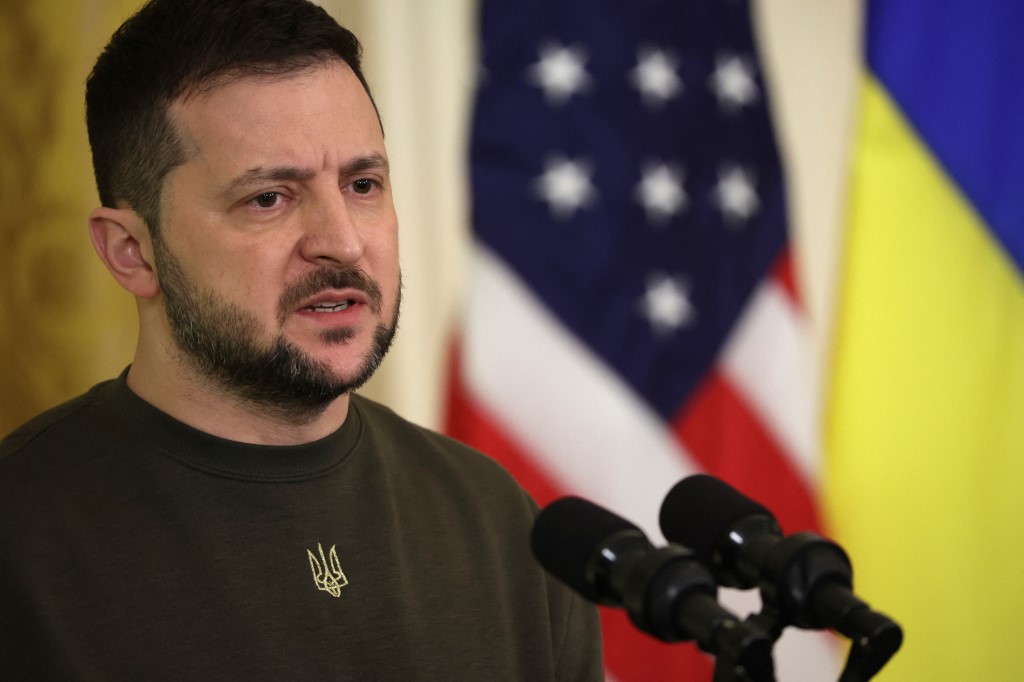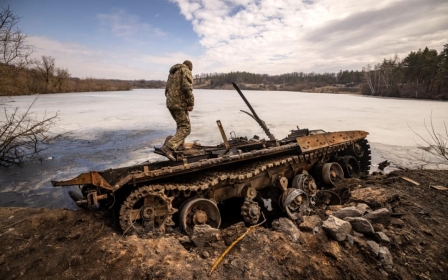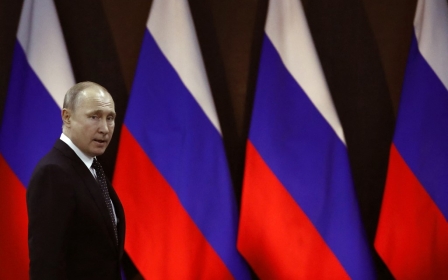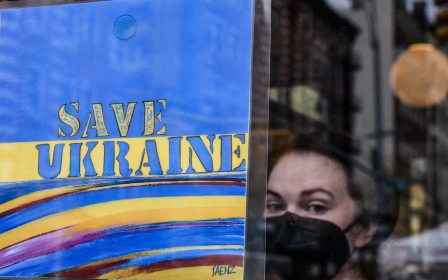Russia-Ukraine war: A conflict of huge miscalculations
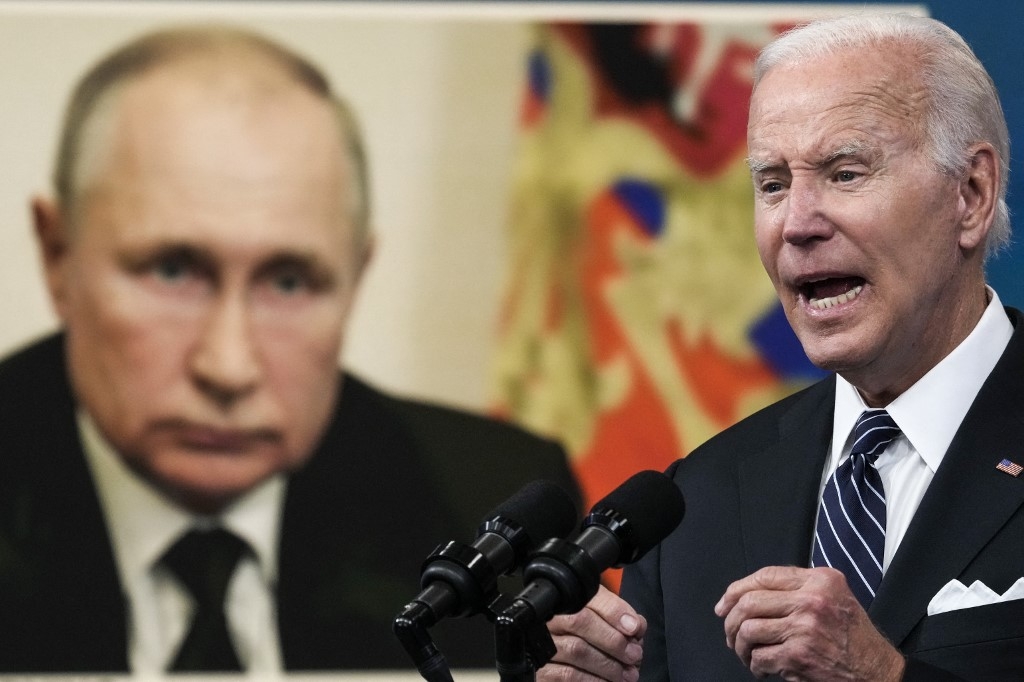
Since he decided to invade Ukraine in February, Russian President Vladimir Putin has been subject to widespread attention and scrutiny by a multitude of scholars and pundits of international relations, opinion makers and even psychiatrists.
He has been described as a ruthless autocrat, a cold calculator, a war criminal and someone bordering on insanity. Mad Vlad has been a recurrent label attached to him, and a comparison with Adolf Hitler has come out frequently, too.
Most of the western pundits who have been profiling the Russian leader have never met him.
In my previous role as a diplomat, I had a couple of occasions to sit with Vladimir Putin and other people in the same room
In my previous role as a diplomat, I had a couple of occasions to sit with him and other people in the same room. However, I would never venture to predict what he is thinking and planning. Putin's reclusive habit and his very small and loyal inner circle probably prevent any reliable assessment of his real aims.
What I do feel confident saying is that he conveyed to me the impression of someone able to handle with high mastery every single detail of any topic he is dealing with.
New MEE newsletter: Jerusalem Dispatch
Sign up to get the latest insights and analysis on Israel-Palestine, alongside Turkey Unpacked and other MEE newsletters
Until the war in Ukraine erupted, Putin gave the impression of someone capable of managing complex games on multiple tables owning very poor cards. In a nutshell, the perfect poker player.
Putin's lost magic touch?
Having said that, I feel confident in saying that any predictions regarding Putin's real aims and behaviour are purely speculative.
During the Soviet era, after all, so-called Kremlinologists had to check the order of protocol of the communist leaders during the annual military parade in Red Square to assess the shifting power balance inside the USSR's nomenklatura. Today's experts on Russia go through a complex exegesis of Putin's speeches and interviews to get clues about his thinking and intentions.
In such a realm, nothing can be taken for granted. It is difficult to ascertain if Putin is effectively pursuing a deliberate course of action or whether he is simply misleading his opponents by dissimulating his real intentions.
It might be that since the 24 February invasion of Ukraine, the Russian leader has lost his alleged magic touch. At first sight, the military campaign has been disastrous; as has been the diplomatic fallout, at least among the constituencies of the global West.
As for the global Rest, the picture is more controversial, with only bland condemnations of the invasion and no following of the West in sanctioning Moscow.
Russia's poor military performance came as a shock to many. In Syria, over the last decade, the Russian armed forces have been able to change the course of the civil war.
Since February, there have been two huge apparent miscalculations. The first was Russian confidence about quickly prevailing on the ground against the Ukrainian army. The second was western confidence that in a matter of weeks it would be possible to bring Russia to its knees through unprecedented sanctions.
When nuclear powers are involved, indulging in miscalculations could sooner or later have catastrophic results. Russia issued ambiguous statements on the possible use of tactical nuclear weapons in the Ukrainian conflict, while western pundits added that a cornered Russia could very well conceive the use of such weapons.
The United States has so far shown cautiousness by not supplying Ukraine with the most lethal weapons from its vast conventional military arsenal. The Patriot air defence missiles Washington has recently promised to Kyiv would not seem to be a game-changer.
A careful strategy to avoid any escalation seems to be in play.
Exit strategy
However, after such serial miscalculations, the priority should be finding an exit strategy from the conflict that ideally suits the interests of all players. Easy to say, very hard to achieve, especially given the zero-sum mentality that appears to be pervading the thoughts of all major players at present.
Furthermore, is it sound to assume that the main actors are actually looking for an exit strategy?
For Ukraine's President Volodymyr Zelensky, it would be difficult to settle for a deal now when roughly 20 percent of Ukraine's territory is still under Russian occupation. True, Ukraine has recovered Kherson and Kharkiv, but will it be enough to justify the huge sacrifice and destruction endured so far by its population?
The same reasoning can be applied to Putin. A settlement now would register as a defeat for Russia, especially since its troops have been retreating from their previously held positions for the last three months.
The US is aware of the risks of escalation that the ongoing conflict presents, but the "let Russia bleed" policy seems to be still quite attractive inside Washington's Beltway. Zelensky's recent visit to the US capital and the standing ovation he received from Congress do not suggest restraint.
What then if all the major players in this conflict are actually looking to, or at least adjusting to, a long game?
High toll
The war has exacted a high toll on almost everyone. Firstly and primarily on Ukraine, which has been bravely resisting an all-out assault on its cities and infrastructure, with severe casualties among its soldiers and the civilian population. Secondly, on the Russian army, with its similarly estimated heavy casualties and on its civilian population, under the duress of western sanctions.
Thirdly, on Europe, which in a few months has been compelled to reverse a decades-old energy relationship with Russia that is causing inflation, supply disruption and a possible economic downturn. Only the US, so far, has escaped the dire social and economic consequences of the conflict.
The Russian leader flaunts confidence, but he could be approaching more miscalculations, should he assess that Russians' resilience in carrying on the war will outmatch the Ukrainians'
Although he has often been described as being surrounded by sycophants, isolated in a bubble and detached from the daily reality of his country, Putin, so far, seems to have shown more knowledge of his own population than many western pundits. The internal criticism levelled against him has tragically focused more on his alleged restraint in the military operation in Ukraine than on his reckless decision to invade the country.
It is also true that any attempt to gauge real Russian dissent towards the war is quite difficult, considering the autocratic nature of modern Russia.
The Russian leader flaunts confidence, but he could be approaching more miscalculations, should he assess that Russians' resilience in carrying on the war will outmatch the Ukrainians', and if he calculates that western support for Kyiv is not limitless.
As for Zelensky, his miscalculation could be his confidence that his exhausted population could endure such a dramatic situation for another full winter.
As for the US, their miscalculation could be in underestimating and overestimating Russian and Ukrainian resilience, respectively.
If the last months' miscalculations have been devastating, the next ones could be catastrophic.
The views expressed in this article belong to the author and do not necessarily reflect the editorial policy of Middle East Eye.
Middle East Eye delivers independent and unrivalled coverage and analysis of the Middle East, North Africa and beyond. To learn more about republishing this content and the associated fees, please fill out this form. More about MEE can be found here.



